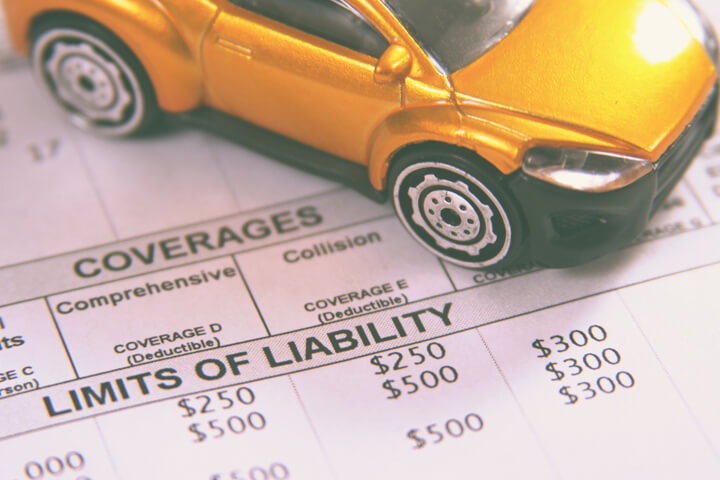Imagine the excitement of driving your new car off the lot, only to discover persistent mechanical issues weeks later. Frustrating, isn’t it? For many car buyers, this scenario is more than a nightmare—it’s reality. The automotive market, despite its advances, still sees thousands of defective vehicles, commonly called “lemons,” sold to unsuspecting consumers every year. Thankfully, consumer protection laws—better known as lemon laws—exist to shield you from the headache of repeatedly malfunctioning vehicles.
This guide unpacks everything you need to know about lemon laws, your rights as an auto buyer, and how to take action if you find yourself saddled with a defective vehicle.
What Are Lemon Laws?
Lemon laws are regulations that protect consumers who purchase or lease new (and in some cases, used) vehicles plagued by persistent, unfixable issues. These laws require manufacturers to either replace the faulty vehicle or refund the buyer’s money if the car meets certain criteria. Lemon laws seek to ensure fairness and accountability in the automotive industry, discouraging manufacturers from passing off defective products to the public.
Why the Name “Lemon”?
The term “lemon” refers to vehicles that, despite multiple repair attempts, continue to have significant defects affecting their safety, value, or operation. This slang has become deeply rooted in consumer protection discussions because of how sour experiences with faulty vehicles can be.
The Importance of Lemon Laws in the Automotive Industry
For most people, buying a car is one of the most important financial decisions. Lemon laws are crucial for maintaining trust in the automotive marketplace, as they:
- Empower consumers to seek justice rather than bear the burden of defective products
- Force automakers to maintain high quality and accountability standards
- Help prevent manufacturers from ignoring recurring defects
- Foster transparency between dealers, manufacturers, and buyers
Without these legal protections, the power imbalance between car buyers and industry giants would often leave the consumer at a loss.
How Lemon Laws Work
Lemon laws differ by country, and sometimes by region or state within a country. However, several core elements are universal:
Eligibility Criteria
To qualify for lemon law protection, certain conditions typically must be met:
- The vehicle has a substantial defect that affects its use, safety, or value
- The issue surfaces within a specific timeframe or mileage limit (often within the first 12–24 months or a set number of miles)
- Multiple repair attempts have been made, usually three to four, without success
- Alternatively, the vehicle has been out of service for an extended period (often 30 days or more) due to repair needs
New vs. Used Cars
Most lemon laws were originally written for new cars, but many jurisdictions now apply similar protections to used and leased vehicles, especially if still under manufacturer warranty.
The Consumer’s Roadmap: Steps to Take if You Have a Lemon
Discovering that you own a lemon is disappointing, but acting swiftly and methodically improves your chances of a successful claim. Here’s what you should do:
1. Keep Detailed Records
Document everything—from purchase agreements, warranty booklets, and repair orders, to communication with the dealer or manufacturer. This paper trail is your key evidence.
2. Allow the Required Number of Repairs
Give the dealer or authorized repair facility a reasonable opportunity to fix the issue. Lemon laws generally require you to make several repair attempts for the same problem.
3. Notify the Manufacturer
If repairs haven’t solved the problem, contact the manufacturer in writing. Reference your repair attempts and ask for a replacement or refund.
4. File a Lemon Law Claim
If the manufacturer does not resolve your case, you can file a complaint under the relevant lemon law. This may involve arbitration or even litigation, depending on your region.
Lemon Laws in the United States
The U.S. boasts some of the world’s strongest consumer protection laws in the auto sector. Laws like the federal Magnuson-Moss Warranty Act supplement state-specific lemon laws. While every state’s requirements differ, common ground exists:
- Coverage usually applies to new vehicles purchased or leased for personal, family, or household use
- Substantial defects must occur within a defined time or mileage limit
- Consumers usually pursue arbitration with the manufacturer before heading to court
It’s vital to check your own state’s lemon law, as some now cover used vehicles, RVs, and motorcycles.
Lemon Laws in the UK, Canada, and Australia
While the United States is a pioneer in lemon laws, other countries provide similar protections through distinct legislation:
United Kingdom
In the UK, consumer protection stems from the Consumer Rights Act 2015, which provides the right to reject a car that is not “of satisfactory quality,” “fit for purpose,” or “as described.” You generally have a 30-day window for a full refund, after which you may request a repair or replacement.
Canada
Canada lacks uniform lemon laws but offers consumer recourse through provincial programs, such as Quebec’s “Protection for New Vehicles.” The Canadian Motor Vehicle Arbitration Plan (CAMVAP) helps mediate disputes involving new vehicles across the country.
Australia
Australia’s Australian Consumer Law (ACL) guarantees that vehicles will be of “acceptable quality.” Car owners are entitled to repairs, replacements, or refunds if their new car is repeatedly defective.
What Counts as a Lemon? Common Examples
Not every minor issue makes a car a lemon. The problem must be substantial—impacting the safety, use, or value of the vehicle. Common qualifying defects include:
- Repeated engine or transmission failures
- Faulty brakes or steering components
- Persistent electrical issues
- Airbag or safety system malfunctions
- Unfixable leaking or overheating issues
Cosmetic problems, routine maintenance, or issues caused by neglect usually do not qualify.
Secondary Consumer Rights: Warranties and Recalls
Lemon laws work in tandem with warranty protections and safety recalls to strengthen the auto consumer’s position.
Manufacturer Warranties
Most new cars include warranties promising repairs for mechanical defects within a set period. If a defect cannot be fixed despite repeated attempts, lemon laws may apply.
Recalls
If your car is subject to a safety recall, the manufacturer must fix the problem at no cost. However, if they fail to do so effectively, lemon law protections may reinforce your claim.
Real-Life Lemon Law Success Stories
- After months of unsuccessful repairs on her new SUV’s electrical system, a California mother received a full refund plus coverage for her legal fees under state lemon law.
- A New York family, fed up with brake issues on their minivan, secured a replacement vehicle from the automaker after arbitration.
- In Australia, a couple received a new car under the consumer law when their four-wheel-drive repeatedly broke down on vacation trips.
These stories highlight how assertive action, backed by strong information, can deliver real results.
Tips for Avoiding Lemons and Maximizing Consumer Rights
While lemon laws protect consumers, prevention is always better than cure. Here’s how to reduce your risk:
- Research vehicle ratings for reliability before purchasing
- Inspect cars thoroughly and arrange for independent mechanical checks
- Keep copies of all service and repair records
- Understand your local lemon law provisions
- Act quickly if you spot serious defects
If you’re buying a used car, examine warranty coverage and ask about previous repairs or return policies.
Frequently Asked Questions About Lemon Laws
Do lemon laws cover used vehicles?
Many now do, especially if the used vehicle is still under the original manufacturer warranty. Rules vary by region.
Can I file a lemon law claim for leased vehicles?
Yes, most lemon laws include leased vehicles if they meet the other eligibility criteria.
How long do I have to file a lemon law claim?
Check your region’s rules. Typically, you must file within 12–24 months of purchase or before the vehicle reaches a certain mileage.
What happens if I lose my claim?
If you lose arbitration or your case isn’t strong, you can seek legal counsel for alternative options, including small claims court.
Conclusion: Empower Yourself as an Automotive Consumer
Buying a car should be exciting, not stressful. Lemon laws serve as your legal safety net, offering recourse when big-ticket purchases go wrong. Knowing your rights, maintaining thorough records, and acting promptly can transform you from a victim into an empowered, informed consumer. The automotive industry is complex—but your protection doesn’t have to be.
Ready to protect your investment and fight for your consumer rights? If you suspect you’ve purchased a lemon, take action today—don’t let manufacturers dodge responsibility for your vehicle. Share this article to help others and consult a consumer rights expert to ensure you get the outcome you deserve!






